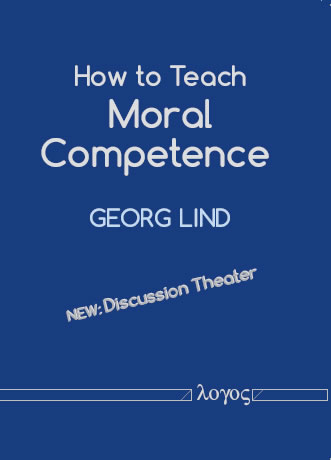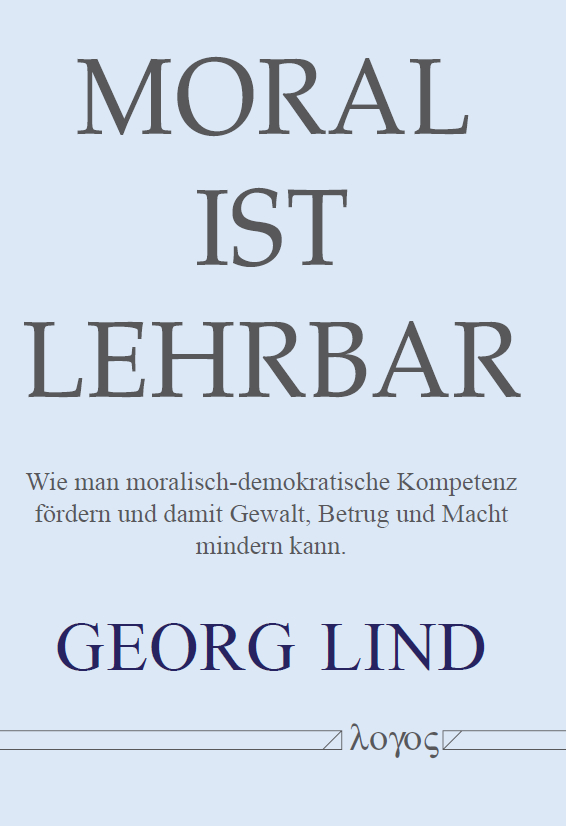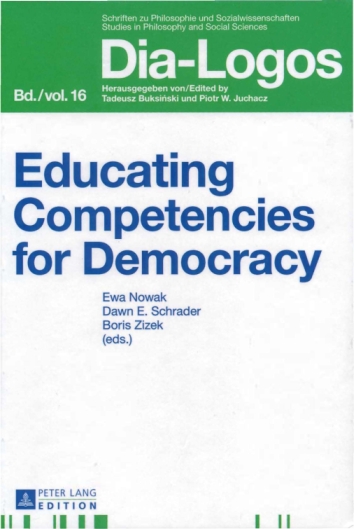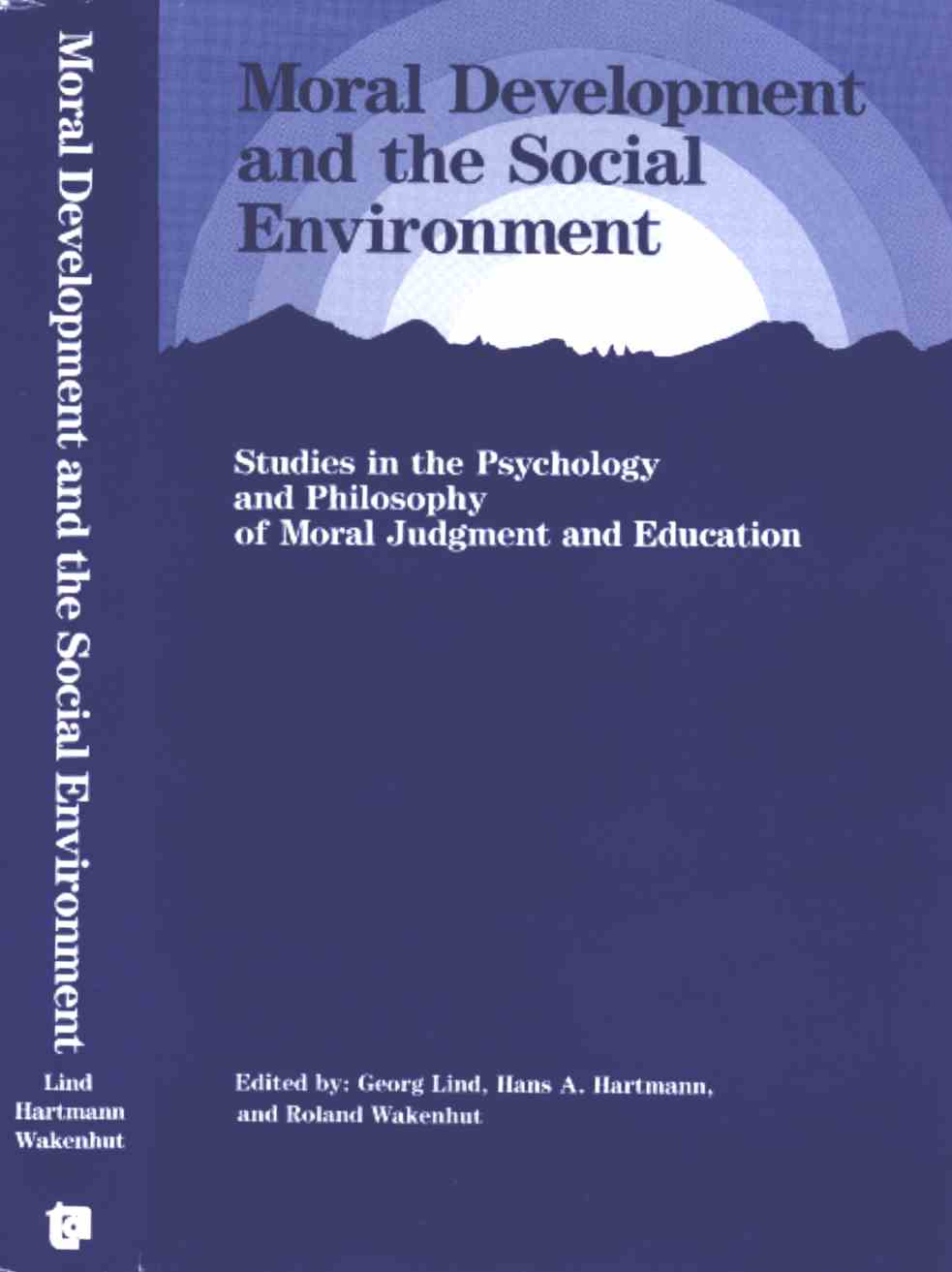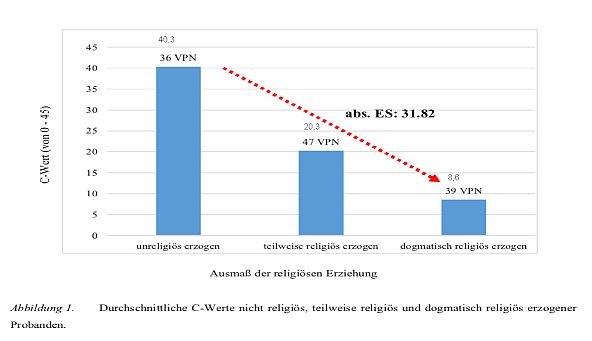New Research on Moral Competence:
Its Nature, Relevance, Education & Evaluation
Home | Author | (c)
Georg Lind
Last revision: June 4, 2020
Free download chapter 4: "How to make moral competence visible." [pdf]
Comprehensive reference lists:
Fostering Moral competence with KMDD and other methods
Programm Evaluation, ITSE (Self-Evaluation)
Open Classroom, Individualized Learning
Slide Shows
Different language versions may contain different slides (Access):
Educational Research annotated
Moral Psychology Research annotated
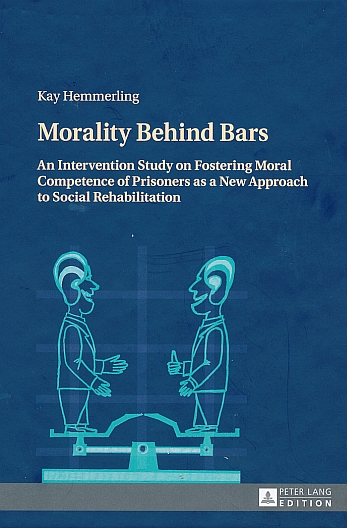
Moral Competence
Lind, G. (2020 / in press). Moral competence: what it means and how accountant education could foster it. In: M. Pinheiro & A. O. Costa, eds., Accounting ethics education. London: Routledge. Lind, G. (2019). How to teach moral competence. Berlin: Logos. Akin, Asli (2020).Religiöse Erziehung und Moralentwicklung: Der Einfluss einer religiös geprägten Kindheit auf die moralische Orientierung und Kompetenz. Ethics in Progress (ISSN 2084-9257). Vol. 9 (2018). No. 2, Art. #3, pp. 27-43. Doi:10.14746/eip.2018.2.3
Doehne, M., von Grundherr, M., & Schäfer, M. (2018). Peer influence in bullying: The autonomy-enhancing effect of moral competence. Aggressive Behavior, 44, 591-600. doi:https://doi.org/10.1002/ab.21784.
Now available as free download! Lind, G. (2018). Demokratie-Erziehung. Online Journal: news4teachers. Teil 1 | Teil 2 | Teil 3 | Teil 4 ... mehr | Democratic Education (transl.) Lind, G. (2019). Moral ist lehrbar. Mit Diskussions-Theater.
Vierte erweitere, überarbeitete Auflage. Berlin: Logos. ... more Nowak, E., Schrader, D. & Zizek, B., eds. (2013), Educating competencies for democracy. Frankfurt am Main: Peter Lang Verlag. Flyer > More publications on fostering moral competence and related topics |
Measurement & Evaluation
Lind, G. (2017). Donders Dilemma. Ist eine internale und objektive Messung von Moralkompetenz möglich? Beitrag zur Moralforschertagung 26.-27. 1. 2017 in Leipzig. Universität Leipzig. ... Slides
Lind, G. (2016). Die Bedeutsamkeit empirischer Befunde: Statistische Signifikanz vs. relative vs. absolute Effektstärken. Erweiterter Vortrag. (überarbeitete Neuauflage mit neuem Vorwort) more [Effect sizes: statistical, practical, and theoretical significance of empirical studies. A continuously revised and corrected presentation since 1985; 2014 Version: in "Marktforschung - Das Portal für Markt-, Medien- und Meinungsforschung".
Lind, G. (2015). The Art of Experimental Moral Psychology. Thoughts in Progress, Ideas for Research. Research paper. ... more
Lind, G. (2011). Verbesserung des Unterrichts durch Selbstevaluation. Ein Plädoyer für unverzerrte Evidenz. [Improvement of teaching through self-evaluation. A plea for unbiased evidence.] In: J. Bellmann & T. Müller, Hg.: Wissen, was wirkt. Kritik evidenzbasierter Pädagogik. Wiesbaden: VS-Verlag für Sozialwissenschaften. ISBN 978-3-531-17688-8.... more [access info ] password = "kohlberg"]
Lind, G. (2011). Selbst ist die Schule! Fremd- versus Selbstevaluation. Grundschule 4/2011, 24-26. ... more
Lind, G. (2009). Amerika als Vorbild? Erwünschte und unerwünschte Folgen aus Evaluationen. [America as role model? Desired and undesired consequences of evaluation.] In: T. Bohl & H. Kiper., eds., Lernen aus Evaluationsergebnissen – Verbesserungen planen und implementieren, pp. 61-79. Bad Heilbrunn: Julius Klinkhardt.
Vollständige Fassung mit den nicht publizierten Kapiteln über „Bildung und Evaluation in den USA“ und „Programmevaluation":... more
